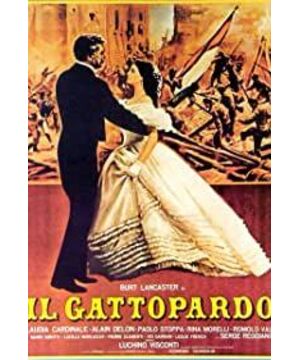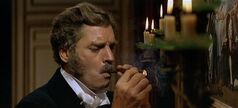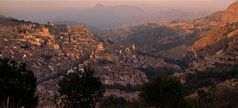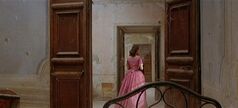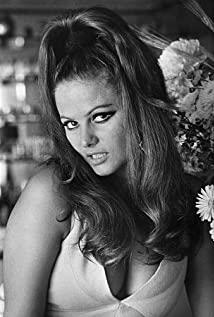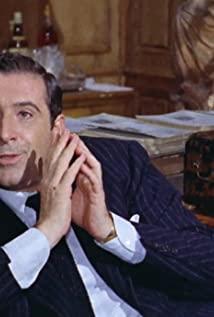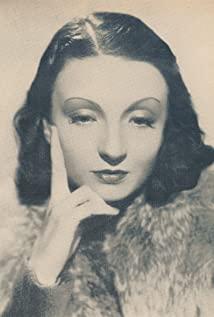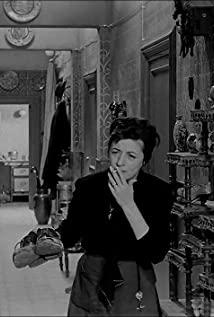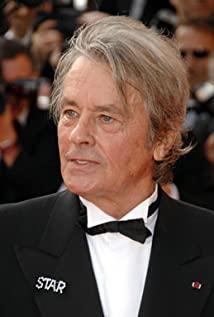Although according to experts, Visconti was confused in etiquette, the kisses that often appeared in "Leopard" only became popular at the end of the 19th century, but the flaws are not concealed. Visconti successfully adapted Joseph Tomazzi Di. A novel of the same name by Giuseppe Tomasi di Lampedusa. "Leopard" is a perfect movie, the story, performance, music, set and even costumes are all top-notch.
Visconti described the tremor brought to Sicily by the unification and revolution of Italy in the 1860s in detail from the perspective of the nobility with rich and full film language. "Leopard" can be said to be a movie created by a nobleman. The novelist Lampedusa is a prince, and Visconti’s father is also a duke. In addition, for the sake of reality, the director also invited the real Palermo nobles to participate. The performance of the prom.
In May 1860, Garibaldi landed on Sicily and marched into Palermo, the capital of the Kingdom of Sicily. The citizens of Palermo broke out in an uprising against the king. The story of "Leopard" unfolds in this context. The film has a fascinating beginning: As a religious noble class, the Salina family is reading the Rosary, and the lightly moving curtain under the breeze suggests the arrival of great changes.
This is an age of revolution. The aristocratic class is fading to the west. On the surface, it is comfortable, upright, and elegant, but in fact it is on a dangerous volcanic crater. Politically, the people’s wisdom is gradually expanding, and the voice for equality is getting higher and higher; economically, the nobility is declining, and the emerging bourgeoisie is quietly eating away their land. Of course, nobles are not all fat brains, Prince Salina (Bert Lancaster, although he is only the son of a U.S. post office worker, but he fully performed aristocratic demeanor in the film) and his nephew Don Creddy (Alan DeLong) is not a mediocre one.
Prince Salina loves science. The study room is full of books and there are two astronomical telescopes. He is a liberal, a bit cynical, and occasionally mocks the hypocritical and conservative Catholic morality. Prince Salina is sober. He understands that change is inevitable, but he stubbornly refuses to be invited to serve as a senator. Mayor Carlo Gero is a nouveau riche, and the prince despises and detests him, but for the future of his favorite nephew, Tang Cleidi, he supports his marriage with Carlo Gero.
If Prince Salina has the nobility that he would rather bend than bend, then Tang Kelaidi has the sleekness of opportunism. As his father squandered his wealth, Tang Kelaidi, a dilapidated nobleman, relied on Prince Salina for his life. The young Tang Cleidi is a shrewd speculator. When Garibaldi landed, he joined the "Red Shirt Army" as an officer, and returned home as a hero after being wounded. When the current events came back, he immediately took off his red shirt and joined the government army, turning around and reprimanding Garibaldi's army for being a mob.
"We are the lion and the leopard, and the jackals and the terriers will replace us." According to Prince Salina's words, Carlo Gero is undoubtedly the latter, but what about Tang Creddy? Lions and leopards are majestic and fierce, while jackals and terrestrial dogs are insignificant and cruel. In turbulent times, the wretched can survive, no matter what he was before, only jackals and coyotes can survive now. The trendy guy Tang Cleidi is actually the same as Carlo Gello, who manipulated the referendum. They are both ambitious, aware of current affairs, and capable of getting involved in the camp. This energetic young man fell in love with Carlo Gero's daughter Angelina (Claudia Katina) at first sight, but it is hard to say that he has no financial considerations for this marriage. What Tang Kelaidi needs is the support of money, and what Carlo Gero needs is the promotion of identity, the two hit it off.
The climax of the film is the nearly 50-minute dance scene, which is probably the most exciting dance in the history of the film. At the ball, Prince Salina felt weak and old. He watched the French painter Jean-Baptiste Greuze's masterpiece "The Wicked Son Punished, 1778" (The Wicked Son Punished, 1778), and the breath of death came to his face. He is undoubtedly the elite of the Sicilian aristocratic class, but like his body, this class has accelerated aging and will die.
The ball belongs to young people, and Angelina hopes that the ball will never end, and the prince only feels bored and lonely, until Angelina invites him to dance a waltz with herself. At the time, the waltz was regarded as an overly frivolous dance. The aging prince embraced the young Angelina and took a beautiful dance. The waltz was amazing, but this dance was the dance of death, the last meal of the leopard.
Angelina is beautiful and moving, and her appearance not only attracted Tang Kelaidi but also Prince Salina. Prince Salina has long lost his emotional life, because the prince’s wife is an old-fashioned Catholic, and every time she kisses her husband, she has to draw a cross quickly, so that the prince complained, "We have seven children, but I never even saw it. Her belly button!". Angelina's beauty and wildness touched Prince Salina's heartstrings, and he greedily kissed Angelina's palm to expose himself. But they are impossible. There is no destiny between the noble and the beautiful. There is only one last waltz between them.
The ball was over, and people of all colors waited to leave. The soldiers rushed to shoot the former comrades who had joined Garibaldi's army. Prince Salina knelt on one knee to pray. Before dawn, he walked into the shadow of history amidst gunshots. In the torrent of the great age, the good and the bad, the beautiful and the ugly, the noble and the humble, the fate, the ups and downs of life experience, future generations can only sigh.
Shadow Kingdom http://buckzhao.blogspot.com
View more about The Leopard reviews


